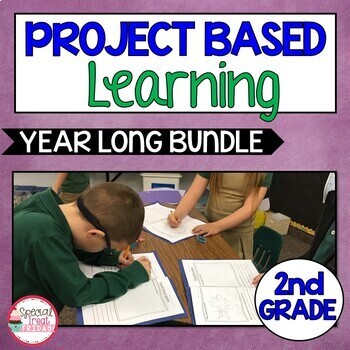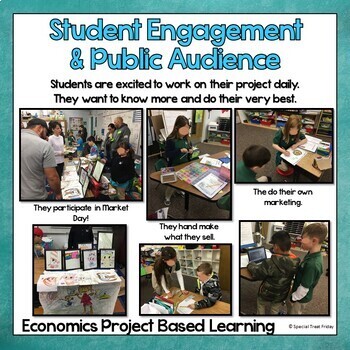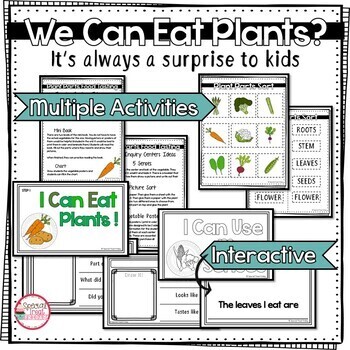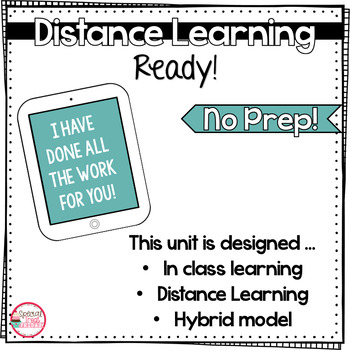Project Based Learning Curriculum | 2nd Grade PBL Activities
- Zip
Products in this Bundle (7)
showing 1-5 of 7 products
Description
In this Project Based Learning Science and Social Studies Bundle you will have everything you need to teach PBL this year! Creating these units are time consuming for any teacher and this bundle will save you hours and hours of work, planning and your time. We take the boring and make PBL fun and easy to teach. It includes a Plant Unit, Economics and Financial Literacy Unit, Habitats and Ecosystem Unit, an Iceberg Unit and more. These are all the top selling 2nd grade PBL units that we have.
Some units are DIGITAL
If you want to see what these look like in the classroom...
check out these blog articles:
Economics and Financial Literacy
How to use Project Based Learning in the Classroom
ECONOMICS AND FINANCIAL LITERACY
Students learn the ins and outs of getting paid, paying taxes, saving, spending and giving, needs, wants, producers, consumers, farm to fork, supply and demand, and limited resources. The class will read a story that walks them through opening their own small business. They do each step along the way. In the end they get to participate in a class marketplace where they practice marketing, giving change, talking with customers and more. It is an interactive and engaging project that students will remember for a long time. SOME LESSONS ARE DIGITAL
With your students you will be able to teach them all about the parts of plants, their functions, do activities with the parts of plants, grow your own plants using experimental methods, read about plants in Close Reading articles and Mini Books, do sequence writing with informational articles, craftivities, inquiry based Science Stations, dissect, make a plant flip book, figure out what plants we can eat, and end it all with a culminating event.
(Includes a Digital Unit as well as a Digital Interactive Notebook)
Make learning to do research fun! Using the PBL Model, students get to use close reading articles, books, pictures, videos and technology to research a habitat. This process helps students gain skills in problem solving, group work, investigating, and engages them in challenges. This unit integrates math, science, ELA and writing. Through all this learning, they end up with a final project about their habitat and get to do a presentation. This unit can be done in class or as a Distance Learning Unit or a hybrid plan.
ICEBERG EXPERIMENT AND RESEARCH
This mini unit is a 4 day Step by Step Lesson Plan to teach students using the NGSS 2-ESS2-3 Standards. It is easy to use and interactive for the students.
The students answer the question: What effect does saltwater have on icebergs? How does adding salt and ice to the water affect the temperature of the water? This unit uses research about icebergs to write a paper and then the students get a chance to do an experiment using some of the information that they learned.
INCLUDED
- For the Economics Unit there are Step by Step and very detailed lesson plans for you. It saves you all the planning.
- 34 Page Narrative Financial Literacy E-Book about two kids who start their own small business. It teaches Financial Literacy, vocabulary and walks the students through the process of starting their own business.
- Full Business Plan For Students (This includes a new business booklet that is 31 pages with all the information that they need to start their new business. It can all be done in class)
- Step by Step Lesson Plans for the Iceberg Labs (Even a Substitute can use them)
- Informational Close Reading Article on Icebergs
- Step by Step Lesson Plans on Plants for over 18 days. I guide you through each lesson and prepare you along the way.
- Planting Experiment to help students see exactly what plants need to grow
- Dissecting Flowers Experiment to help students look a little closer at the inside plants and the similarities and differences between plants.
- 4 Mini Books About Plants (Differentiated) and What Plants we can eat. These books work great as independent work, in science stations, or whole group.
TEKS USED
1st Grade: TEKS 1.9A, 1.9B, 1.9C, 1.9D
2nd Grade: TEKS 2.11A, 2.11B, 2.11D, 2.11E, 2.11F
3rd Grade: TEKS 2.9B, 2.9C, 2.9D, 2.9F
HOW TO USE THIS RESOURCE
Since this unit is a Project Based Learning Unit, it includes the standards from various subject areas. Depending on your ELA and Writing Block, many of the activities in this unit can be used during that time.
Also, many of the activities work very well in Inquiry Science Centers or for small group rotations.
The mini books and Close Reading can be used during a reading block.
Don’t forget that leaving feedback earns you points toward FREE TPT purchases. I love FEEDBACK!
LET'S CONNECT Special Treat Friday Blog | Writing Membership | TPT | Facebook | Instagram | YouTube
As always, please contact me with any questions.
Thank you so much,
Special Treat Friday, Heather McKinsey





